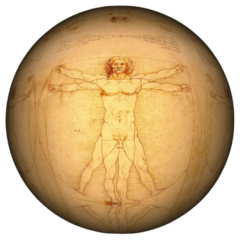Radiocarbon dating is a technique used to determine the age of organic materials by measuring the levels of carbon-14, a radioactive isotope of carbon, in them. This method is based on the fact that carbon-14 is constantly being produced in the Earth’s atmosphere through the interaction of cosmic rays with nitrogen atoms.
Carbon-14 is then absorbed by plants and animals, and when these organisms die, the carbon-14 begins to decay at a steady rate. By measuring the amount of carbon-14 remaining in a sample, scientists can determine how long it has been since the organism died.
However, radiocarbon dating has a number of limitations. One of the main limitations is that it can only be used to date materials that are up to about 50,000 years old. This is because the half-life of carbon-14 is relatively short, and after a few tens of thousands of years, there is simply not enough carbon-14 left in the sample to accurately measure.
Another limitation of radiocarbon dating is that it is only applicable to organic materials, such as wood, bone, and plant remains. It cannot be used to date inorganic materials, such as rocks or metals.
Another limitation is that the technique is not always accurate, particularly for samples that are very old or for samples that have been contaminated with carbon from other sources. For example, if a sample has been contaminated with modern carbon from industrial processes or from the handling and storage of the sample, the radiocarbon dating results will be inaccurate.
Finally, radiocarbon dating can be expensive and time-consuming, as it requires the use of specialized equipment and trained personnel to collect and analyze the samples.
Overall, while radiocarbon dating is a valuable tool for determining the age of organic materials, it is important to keep in mind its limitations and to carefully consider the potential sources of error when interpreting the results.
Further reading and suggested videos:
Blackbody Radiation Cannot Be Explained Classically – Chemistry LibreTexts
Do you like this topic? Find out more!

